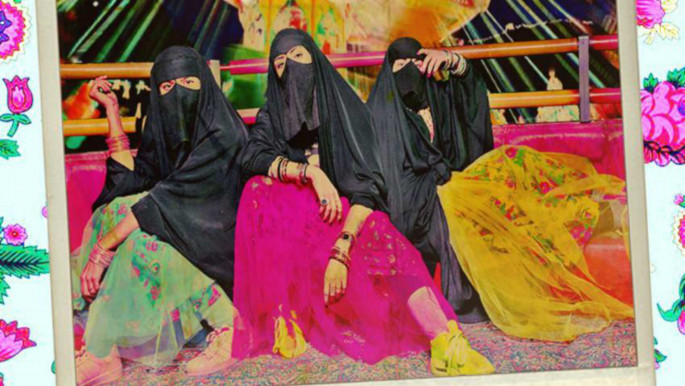Lebanon joins Jordan and Tunisia in scrapping reviled 'marry-the-victim' rape law
Lebanon's parliament has abolished a law that allowed a rapist to escape punishment if he married his victim.
It joins Tunisia, Morocco, Egypt and most recently Jordan in repealing a provision which allowed rapists to avoid prosecution by marrying their victims, a phenomenon still practised in the country, especially among conservative families seeking to preserve the family's so-called "honour".
Women in Lebanon have long campaigned for the government to scrap the reviled Article 522.
In March, an activist from Lebanese NGO Abaad, which campaigns for gender equality, dressed as a bride and wearing bandages stood in a golden cage near the parliament with a placard stating: "A white dress doesn't cover the rape."
An April exhibition, of 31 wedding dresses suspended from makeshift nooses between palm trees along Beirut's seafront corniche also sought to put pressure on legislators to eliminate the law.
 |
|
| Special coverage: Inside the fight for women's rights in the Middle East |
"There are 31 days in a month and every single day, a woman may be raped and forced to marry her rapist," Alia Awada, advocacy manager at Abaad, said at the time.
"We called on all parliamentarians and decision-makers in the Lebanese state with this message: every 'yes' from you is a 'no' to a rapist."
Jean Oghassabian, Lebanon's minister for women's affairs, had previously described the law as being "from the stone age".
In December, the New York-based Human Rights Watch urged Lebanon to repeal Article 522, saying it "allows for a second assault on a rape survivor's rights".
"Protecting honour should be about ensuring that attackers are punished and promoting social attitudes that support survivors of sexual violence instead of stigmatising them," the rights watchdog said.
Follow Shams Al-Shakarchi on Twitter: @shams_shakarchi





 Follow the Middle East's top stories in English at The New Arab on Google News
Follow the Middle East's top stories in English at The New Arab on Google News


